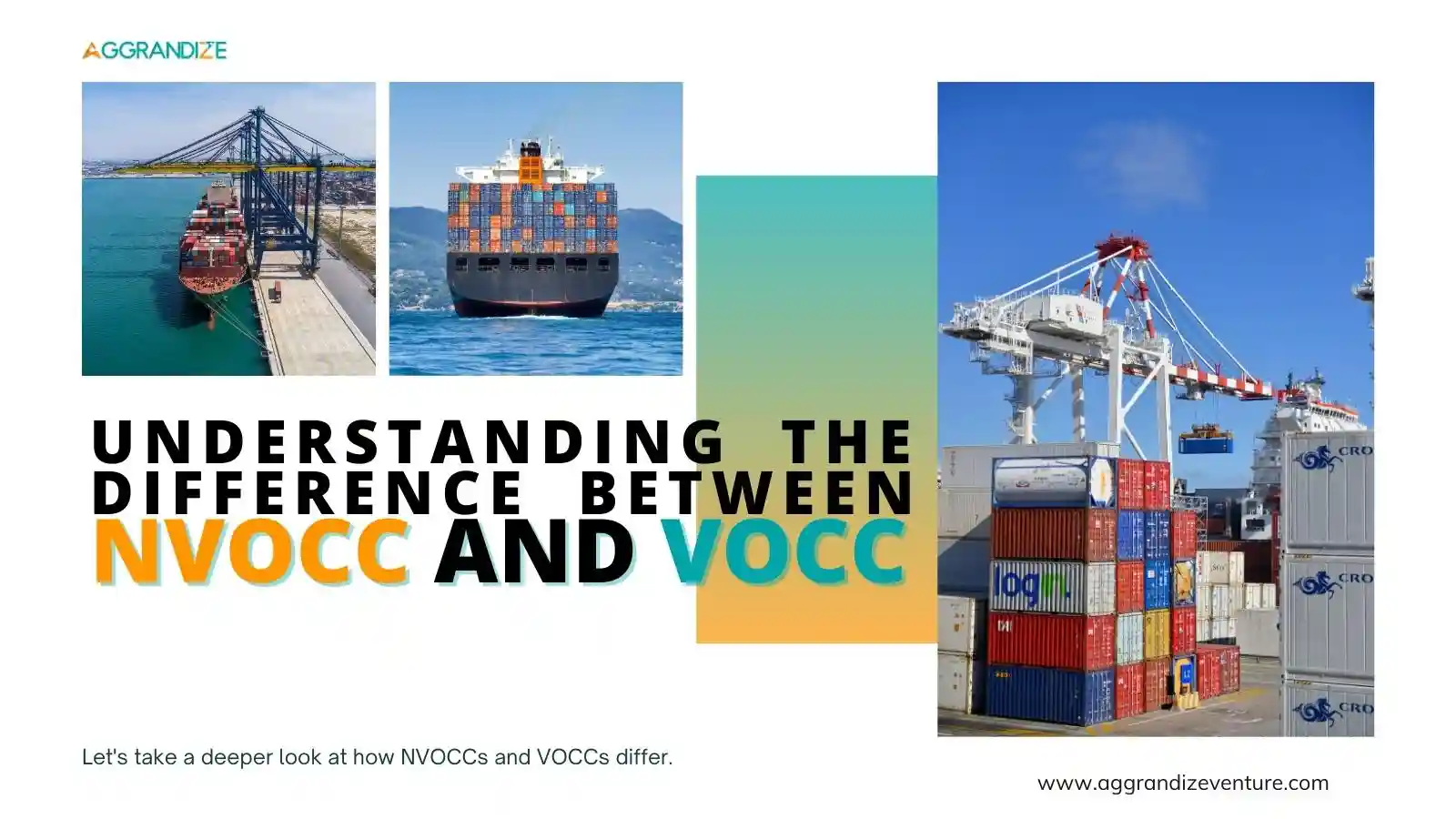When it comes to ocean freight shipping, there are two types of carriers that are commonly involved in the transportation process: NVOCC and VOCC. While both play an important role in the shipment of cargo by sea, they serve very different purposes based on their areas of operation and responsibilities. Let's take a deeper look at how NVOCCs and VOCCs differ.
An NVOCC, or Non-Vessel Operating Common Carrier, arranges for the shipment of cargo across oceans but does not physically operate the ocean-going vessels for transportation. NVOCCs consolidate cargo from multiple customers and issue their own bills of lading taking on legal liability for cargo movement. They set freight rates independently and procure cargo insurance on behalf of shippers. A key role of NVOCCs is contracting directly with VOCCs to reserve vessel space for the cargo they are handling. This allows smaller shippers access to international ocean freight who otherwise may not be able to deal directly with VOCCs.
On the other hand, a VOCC or Vessel Operating Common Carrier is responsible for actual vessel operation and physical cargo transportation. VOCCs own or charter cargo ships directly and officially issue ocean bills of lading to cargo owners. They publish tariffs stating standard rates and operate vessels on fixed schedules along trade routes. VOCCs typically cater to large freight forwarders, importers/exporters who deal in high volumes and can fill an entire container.
Some other notable differences between these carrier types are:NVOCC rates are privately negotiated for each shipment while VOCC rates are fixed as per published tariffs.
NVOCCs handle critical export/import documentation and regulatory compliance tasks on behalf of shippers.
VOCCs deal directly with major cargo owners and have more control over vessel capacity and sailings.
Liability and insurance for cargo loss/damage is the responsibility of NVOCCs who contract these services out to the VOCCs.
Managing complex operations involving multiple stakeholders, high transaction volumes, tight deadlines and regulatory oversight presents unique challenges for both NVOCCs and VOCCs. This is where investing in the right shipping management software solution pays off manifold.
ZEALIT NVOCC softwareis designed specifically for Non-Vessel Operating Common Carrier (NVOCC) companies. It streamlines day-to-day processes with features for container management, NVOCC quotation and NVOCC booking, document workflows, accounting, and more on one unified platform. Some key capabilities include container tracking that allows NVOCCs to manage bookings across multiple ocean carriers. The quotation module helps create custom quotes for shippers quickly. Document management automates processes for bills of lading, packing lists, invoices and other import/export paperwork. Advanced analytics provide visibility into bookings, customer trends, and freight volumes. This helps NVOCCs optimize pricing, resource allocation and carrier selection. Alerts and reminders ensure on-time delivery of documentation to complaint regulatory requirements. Accounting features integrate with general ledger systems for financial reporting. The system facilitates end-to-end NVOCC operations from quotation to delivery. A centralized dashboard gives leadership a real-time view of KPIs like on-time performance, container utilization and customer satisfaction.
Additionally, leveraging technologies like Robotic Process Automation and AI, Zealit further enhances operational efficiency. Whether operating as an NVOCC or VOCC, the seamless coordination of all vessel, cargo and trade lane activities using Zealit ensures on-time deliveries, cost optimization and profitability. Its flexible, scalable nature supports the diverse and evolving needs of logistics businesses.
In conclusion, NVOCCs and VOCCs occupy different yet complementary roles in maritime cargo transportation. Choosing the right technology enabler like Zealit is key to realizing the full potential of these complex business models and building a sustainable competitive advantage.
